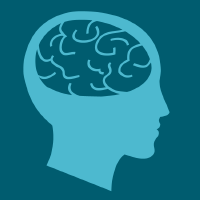Topic Menu
► Topic MenuTopic Editors


Applications of Virtual Reality Technology in Rehabilitation
Topic Information
Dear Colleagues,
The democratization of the use of virtual reality has led to an increase in available virtual reality applications for cognitive training and rehabilitation. Despite this increase, the operating mechanisms underlying the effects in virtual rehabilitation are still not completely understood. Most systematic reviews and meta-analyses in the field highlight the need for conducting high-quality research that allows to understand the working mechanisms of virtual rehabilitation in full and how the effects of intervention sustain over time.
Therefore, this Topic seeks to explore the active ingredients of virtual reality technology in cognitive training and rehabilitation in terms of intervention features relative to the use of game elements, presence of virtual humans and avatars, intensive or distributed practice of cognitive training, or whether the automatization of routines by relying on machine learning methods from artificial intelligence contributes to the efficiency of the rehabilitation procedure.
This Topic is open to innovative studies that explore both the use of new technologies for cognitive training and rehabilitation, as well as studies seeking to contribute to uncover the operating mechanisms of virtual rehabilitation for promoting cognitive overall adjustment of people with acquired brain injury or at risk of developing cognitive impairments.
Dr. Jorge Oliveira
Prof. Dr. Pedro Gamito
Topic Editors
Keywords
- virtual reality
- cognitive training
- cognitive rehabilitation
- virtual rehabilitation
- artificial intelligence
- machine learning
- serious games
- acquired brain injuries
- dementia
Participating Journals
| Journal Name | Impact Factor | CiteScore | Launched Year | First Decision (median) | APC | |
|---|---|---|---|---|---|---|

Brain Sciences
|
3.3 | 3.9 | 2011 | 15.6 Days | CHF 2200 | Submit |

Healthcare
|
2.8 | 2.7 | 2013 | 19.5 Days | CHF 2700 | Submit |

Informatics
|
3.1 | 4.8 | 2014 | 30.3 Days | CHF 1800 | Submit |

International Journal of Environmental Research and Public Health
|
- | 5.4 | 2004 | 29.6 Days | CHF 2500 | Submit |

MDPI Topics is cooperating with Preprints.org and has built a direct connection between MDPI journals and Preprints.org. Authors are encouraged to enjoy the benefits by posting a preprint at Preprints.org prior to publication:
- Immediately share your ideas ahead of publication and establish your research priority;
- Protect your idea from being stolen with this time-stamped preprint article;
- Enhance the exposure and impact of your research;
- Receive feedback from your peers in advance;
- Have it indexed in Web of Science (Preprint Citation Index), Google Scholar, Crossref, SHARE, PrePubMed, Scilit and Europe PMC.

